
Civility, not opinions, was the real surprise in student debate
The student debate in Leiden’s Stadsgehoorzaal promised to be ‘the key to your vote’. That may sound hyperbolic, but what this well-attended debate did achieve was increased trust in politics. ‘They even let each other finish their sentences’, the flabbergasted students concluded at the end.
First things first: the radical right was not represented during the debate in Leiden’s Stadsgehoorzaal last Tuesday evening. PVV leader Geert Wilders didn’t fancy it, which meant no PVV. Volt blocked Forum voor Democratie from attending, and JA21 didn’t come because they felt they had nothing to gain from the debate. Debate moderator Simon van Teutem wasn’t so sure, but upon checking with the room, he was met with scornful laughter. ‘JA21 knows its own electorate better than I do’, he concluded dryly.
The organising Leiden student associations – the seven largest, representing 14,000 students – had chosen three topics with associated propositions. ‘We deliberately chose topics and propositions that articulate students’ wider concerns’, said the chair of the Leiden Chamber of Student Associations, Pim Lammers. This explains the chosen topics of defence, safer streets and housing.
Cameras versus privacy
Safety was the first topic, with Jeltje Straatman (CDA) and Laurens Dassen (Volt) going head to head. Straatman emphatically agreed with the proposition, ‘surveillance cameras should be used to make our streets safer, even if this is at the expense of people’s privacy’. That 65 per cent of women feel unsafe on our streets is unacceptable, she said, which more than justifies the use of cameras. As the footage can only be viewed if a crime has been committed, privacy is not compromised, said Straatman, whose day job is as a lawyer.
Volt leader Dassen also agreed that camera footage should be used to identify criminals. ‘But if you need to view the footage, it means you weren’t able to prevent the crime being committed in the first place, when that’s what we’re aiming for. The disadvantage of cameras is that they’re often used for other things. My concern is that this erodes public safety and trust, and that we create a surveillance society and all that entails.’ He wants to feel free in the Netherlands. ‘I want to be able to demonstrate against the genocide in Gaza without fear of cameras.’
The 1,100 people present proved equally divided on the proposition. Plenty of hands shot up when asked who was in favour of camera surveillance, but more still believed this should not be at the expense of privacy.
-
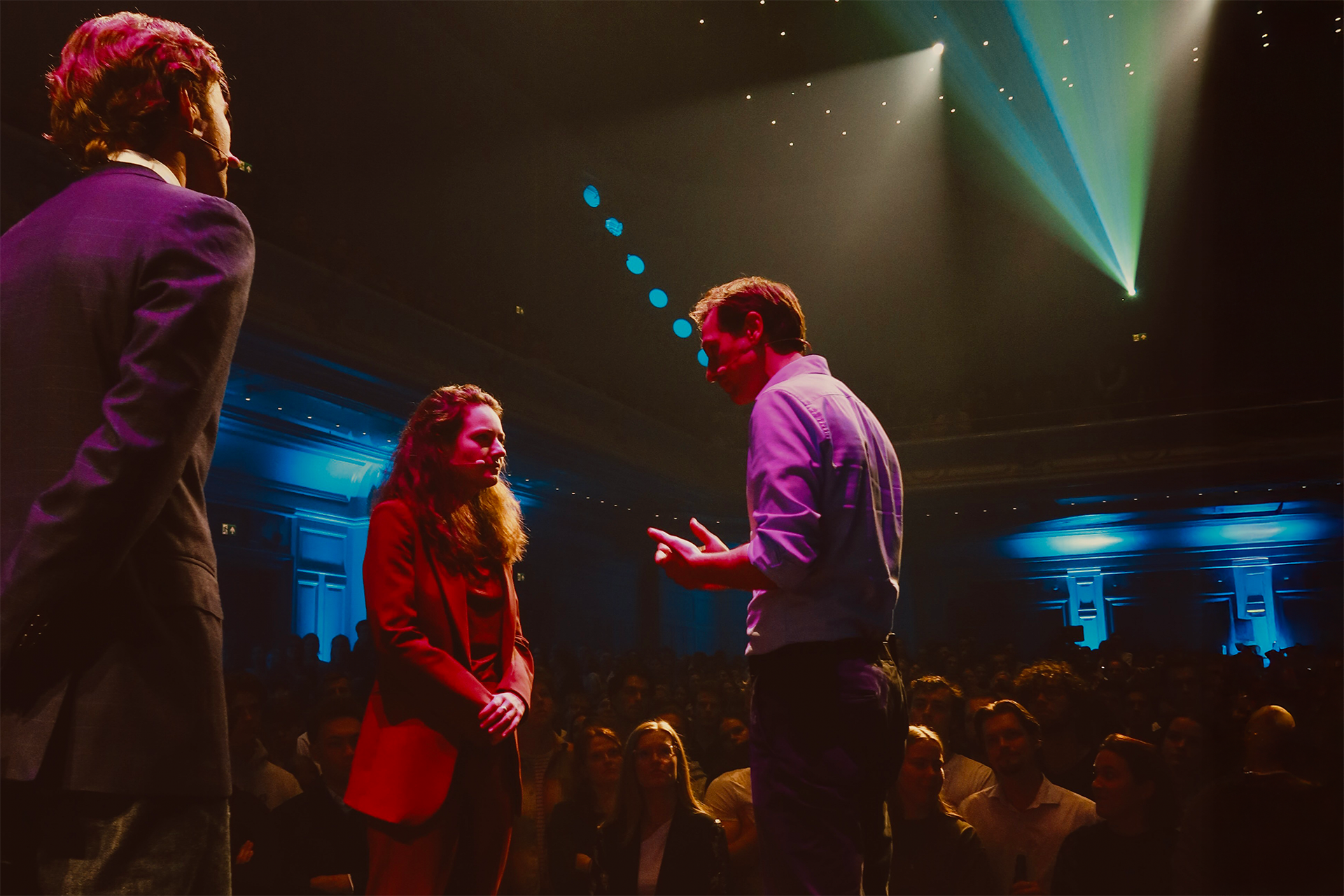
Jeltje Straatman (CDA) and Laurens Dassen (Volt) debate the first topic: safety. -
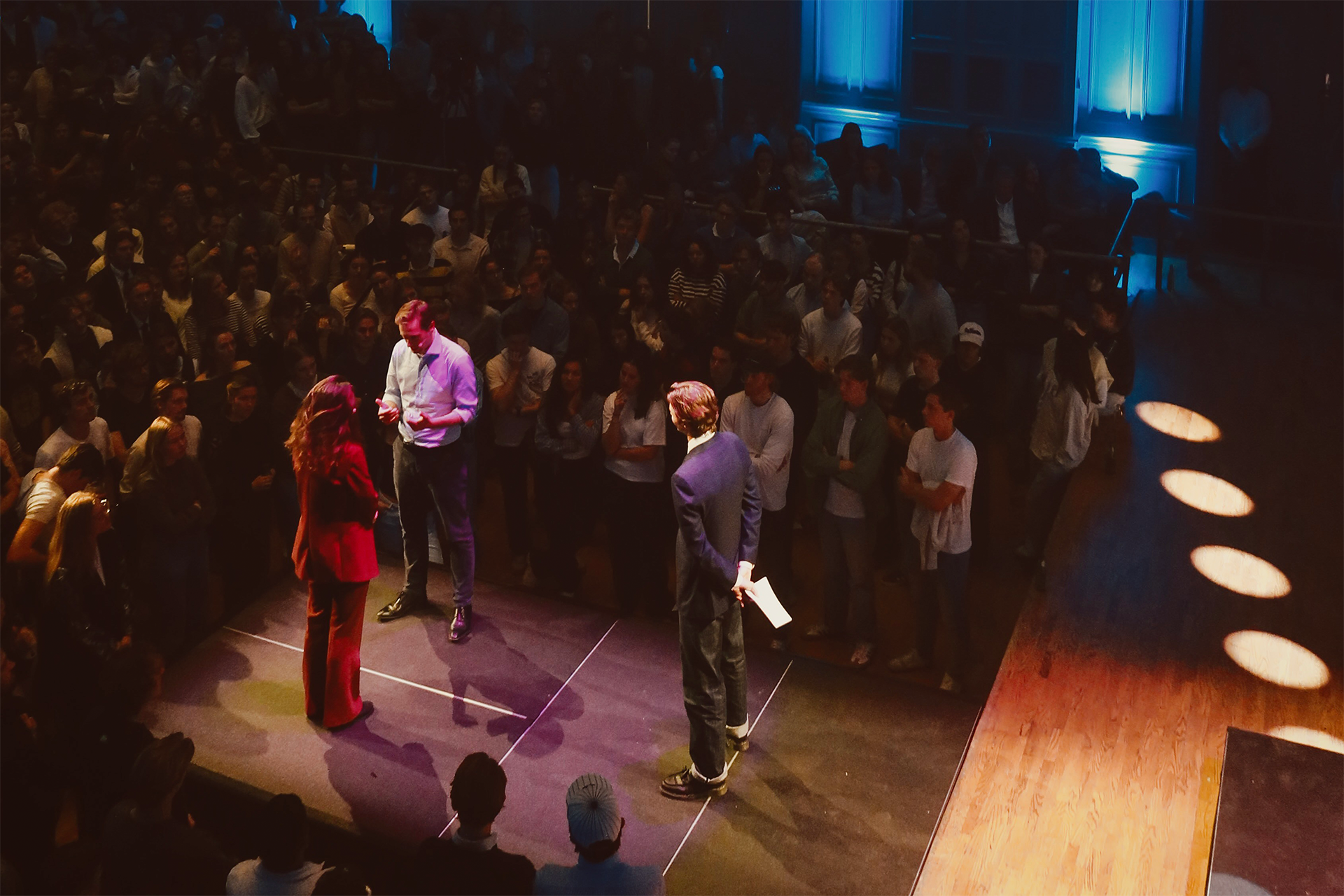
Moderator Simon van Teutem
Conscription and a European army
Don Ceder (ChristenUnie) and Jan Paternotte (D66) were given the topic of reintroducing conscription and creating a European army to debate. Ceder – himself a reservist ‘Because freedom has a price’ – said all 18-year-olds should receive a letter asking how they plan to support the armed forces. But for him, creating a European army would be a bridge too far. ‘Collaboration and joint procurement are fine, but it has to be our government that decides where we fight.’ In his view, a European army would not add much to the NATO alliance.
Paternotte said he felt we can no longer trust America. ‘So I’m all for a European army to protect our safety. Europe has 178 different weapon systems; the US has 20. The Ukrainians were driven crazy by all the different systems. That really must change.’
He thinks a letter to all 18-year-olds inviting them to sign up for the armed forces is a good idea, but does not want to force them to enlist. ‘Our army doesn’t have room for them all anyway.’
The students present agreed with D66 and were in favour of a European army, but the majority were against conscription. But it was a very narrow majority, Van Teutem concluded.
-
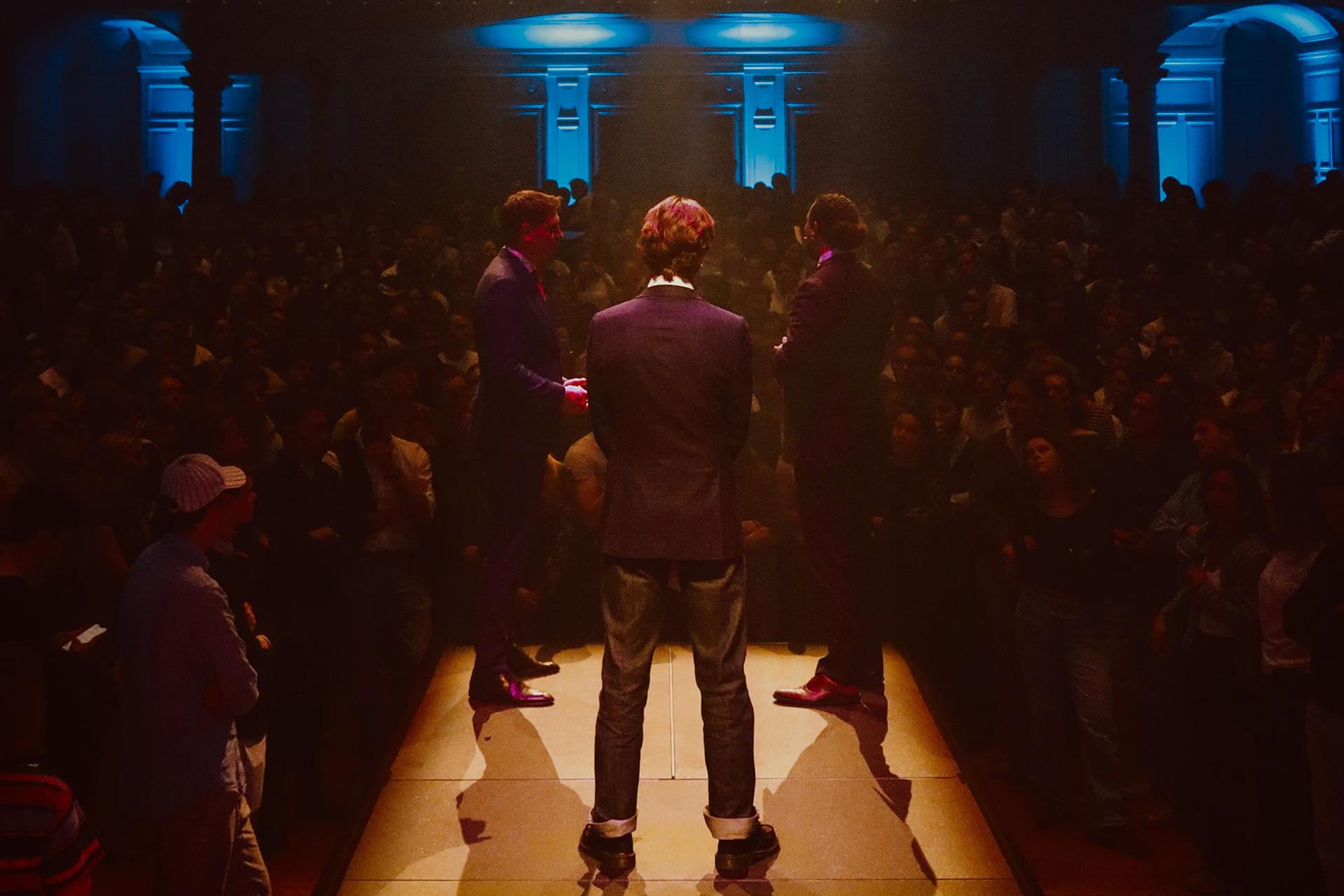
Jan Paternotte (D66) and Don Ceder (CU) debate reintroducing conscription and creating a European army. -
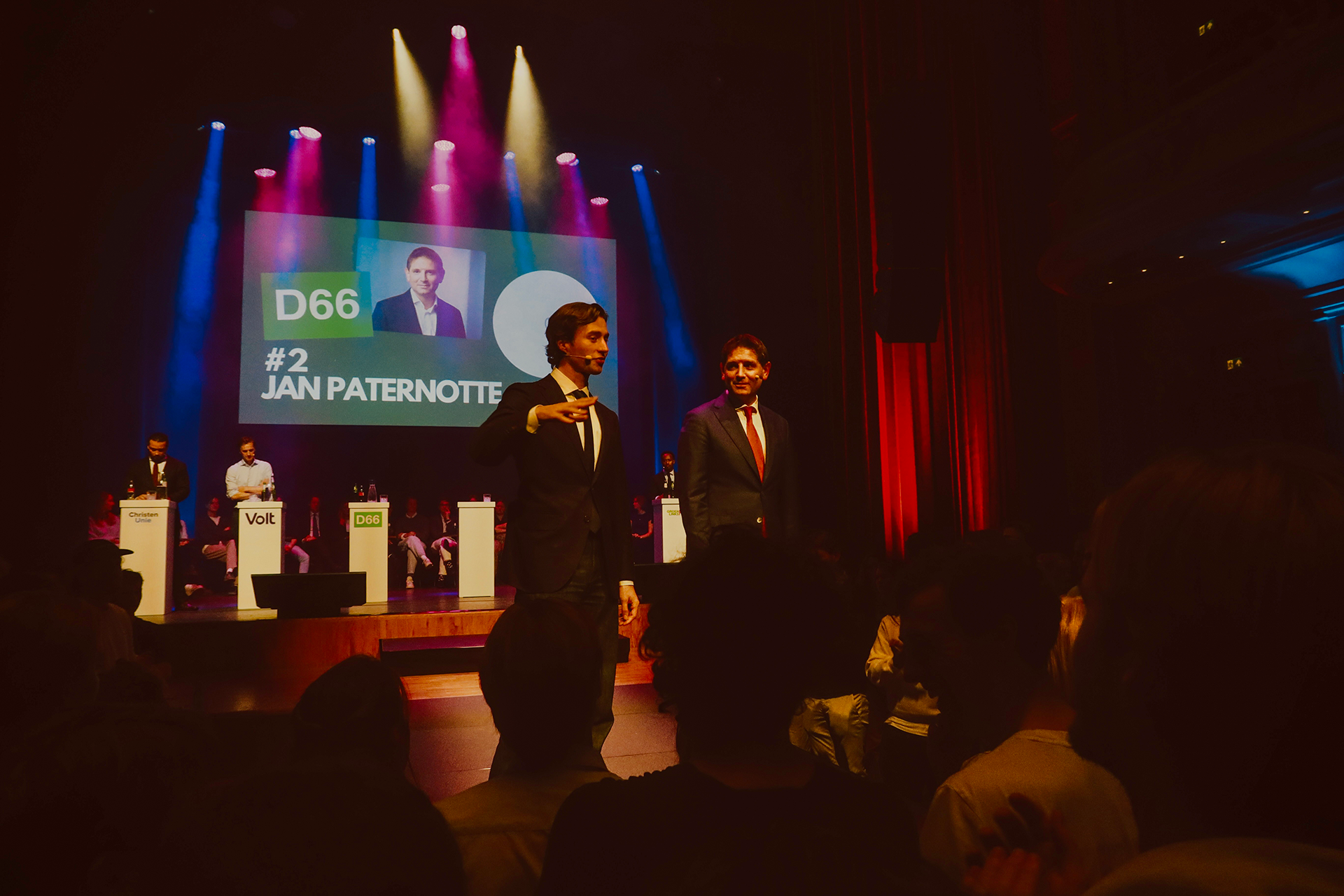
Jan Paternotte (D66) with moderator Simon van Teutem
Housing versus the environment
Then it was the turn of VVD politician Eric van der Burg to defend the proposition that environmental regulations need to be relaxed to solve the housing crisis, and that a certain percentage of housing should be reserved for first-time buyers. Habtamu de Hoop (PvdA) said he was against relaxing the environmental regulations, adding that the biggest problem with housing was the VVD itself because it hadn’t been willing to build enough affordable homes.
‘More than 60,000 homes have stood empty for over a year. Ownership rights are more important to the VVD than the housing crisis.’ Patternotte agreed, reminding Van der Burg of a rule the VVD is unwilling to relinquish: parking requirements for new-build projects.
De Hoop said he was proud that it was his party that wanted to invest most in public housing. And yes, phasing out the mortgage interest deduction was part of this. Van der Burg said, ‘Your parents, and you too later, will regret this.’ He explained that his party encourages home ownership with this deduction and feels that everyone also deserves a holiday home.
That’s not much help to students in this phase of their lives, Paternotte commented, saying that he would prefer it if students living in student houses received housing benefits. That earned him applause from the students, the majority of whom agreed with the PvdA and felt that the environmental regulations should be maintained.
-
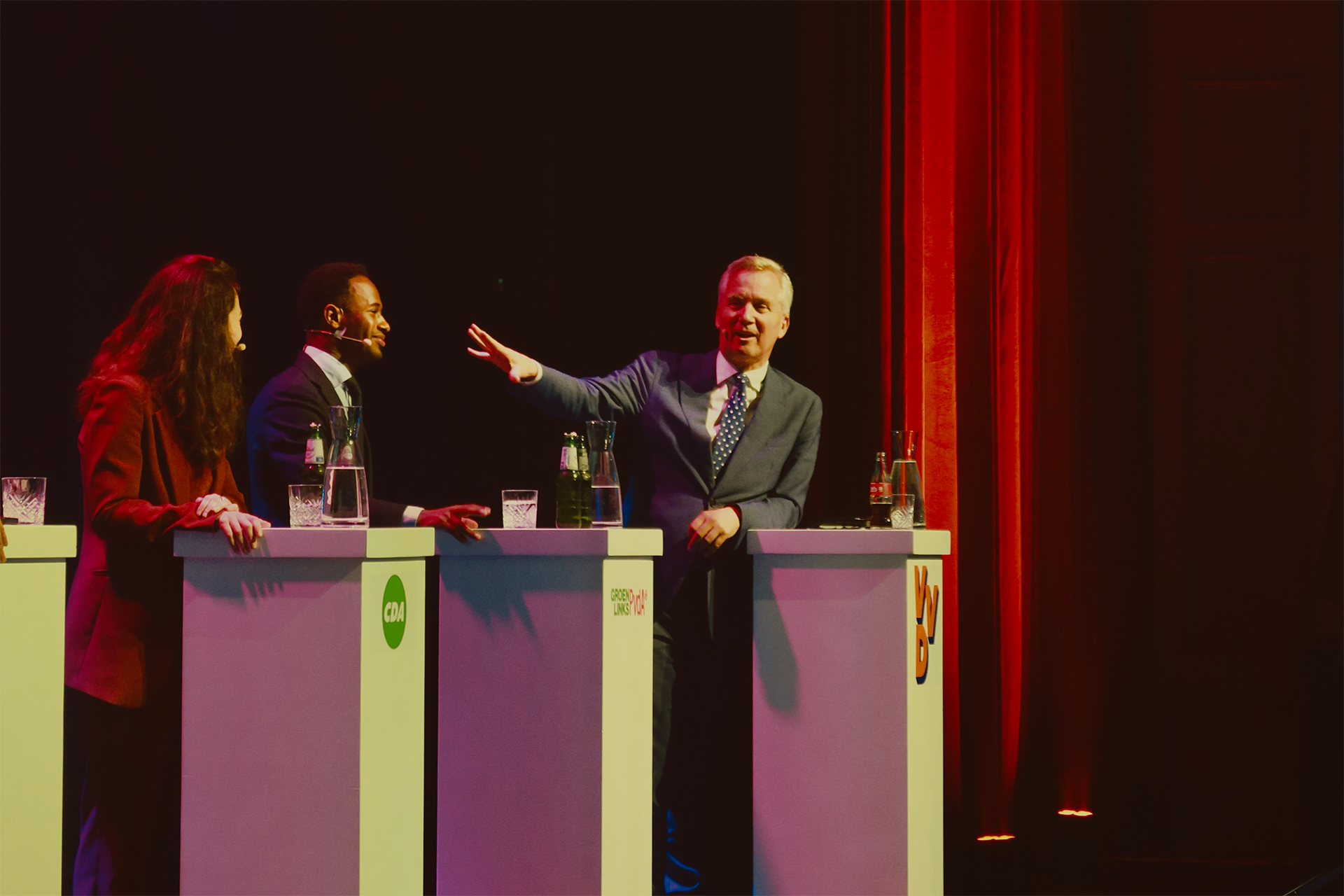
• Eric van der Burg (VVD) and Habtamu de Hoop (PvdA) in debate: housing or environmental regulations -
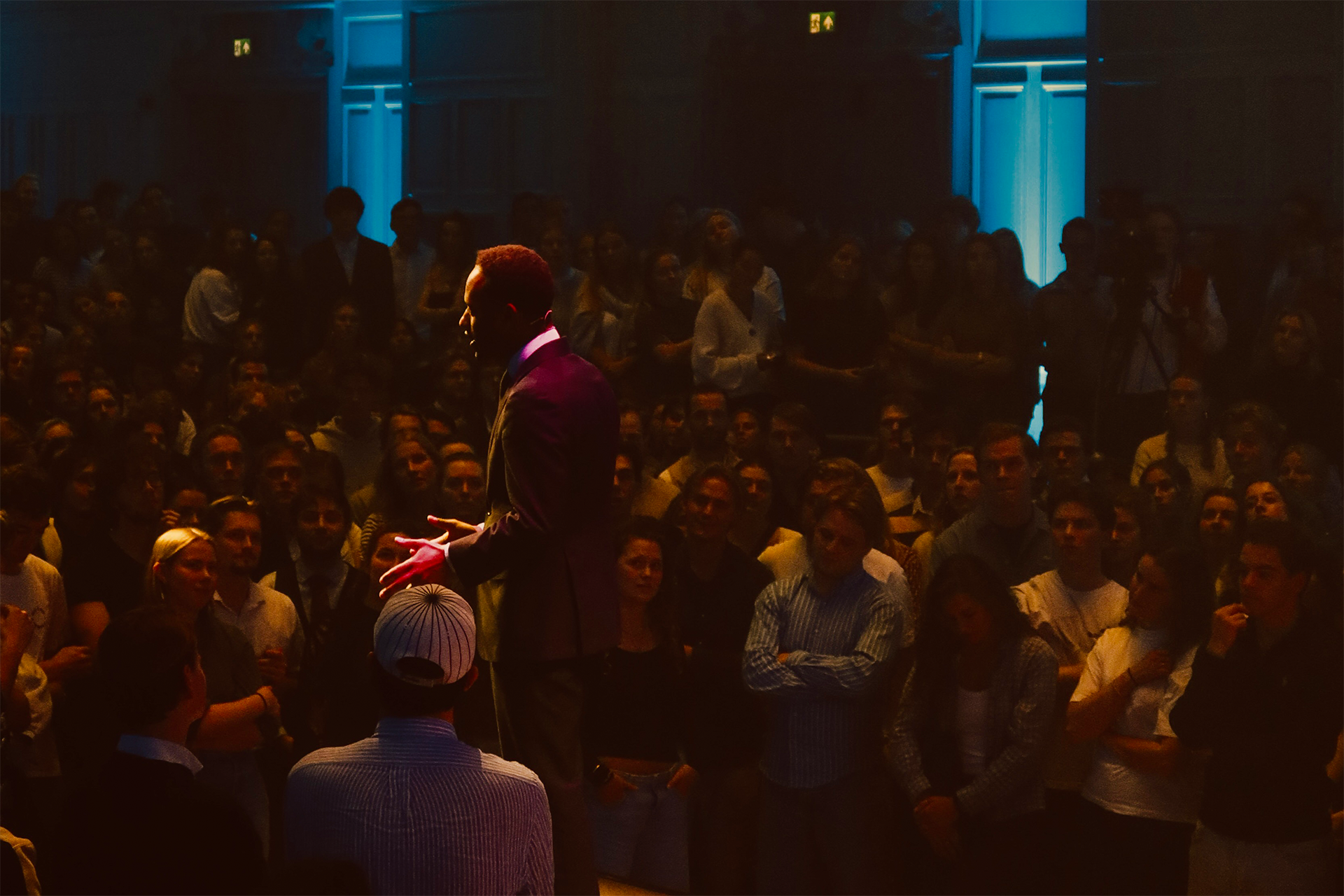
Habtamu de Hoop (PvdA) doesn’t think the environmental regulations should be relaxed
Did the debate provide ‘the key to your vote’?
Gijs (21): ‘I was deliberating between CDA and VVD when I arrived, but am now considering D66, so the debate hasn’t made the decision easier, but it has made it better. Jan Paternotte (D66) made a lot of sense, so I’m going to look into D66. And more importantly, the debate has increased my trust in politics. I saw people who believe in what they say and want the best for society and each other. It’s so rude and toxic on the TV and socials, whereas here they gave each other space and the odd pat on the back.’
Joelle (23) and Chaia (25):
Joelle: ‘Of the four parties I had in mind, I’ve now ruled out two or possibly three, so this debate has definitely helped. I thought Jan Paternotte (D66) was the best debater. Others missed the mark at times. I mean, wonderful the idea of a holiday home, but that won’t exactly help us right now.’
Chaia: ‘And you can’t assume that everyone in this room comes comfortable background and can buy a house with help from the Bank of Mum and Dad. That’s a really strange way of looking at things. But it was an enjoyable evening. They all did well and had fun together too, which was good to see. And it helped me. I think I know who I’m going to vote for.’
Sam (25) and Abe (23):
Sam: ‘I know who I’m going to vote for. A debate won’t change that, but it has changed my ideas about the parties that joined the debate. I thought Jan Paternotte did really well, and Habtamu de Hope was a huge surprise. He was a good speaker. I came to broaden my perspective and have done just that. It was a positive experience – also because they were all so polite to each other.’
Abe: ‘I’m not voting for any of these parties but am voting for a more left-wing one: Partij voor de Dieren. The worldview of this party that doesn’t centre humans quite so much appeals to me. I was also pleasantly surprised by the debate. It was interesting to hear how other parties view the topics, and it was fun to see what other students think about issues. It won’t change my vote, but it did take me out of my bubble.’
Watch the debate
Due to the selected cookie settings, we cannot show this video here.
Watch the video on the original website or